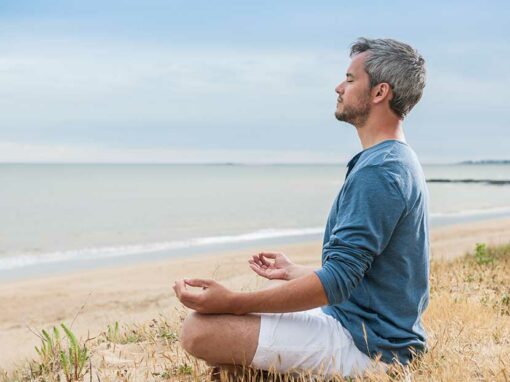How We Live In The World And How We Can Change Our Attitude
– Guest blog post by Marianna –
Part 1 – The Yamas
Most of us think about yoga mostly in terms of physical practice. But how do we interact with other people and the environment and deal with our problems from the perspective of yoga?
Have you ever happened to behave differently at home with your loved ones, and at work, or with your friends?
Maybe at work, we are patient, self-controlled and at home, we quickly lose our temper. Or we are super friendly with our friends and moody with our relatives.
Our attitudes and behaviors influence our and people’s lives.
According to Patanjali tradition, there are five behavior patterns, called Yamas, that can bring serenity and peacefulness if they become part of our daily life.


1. Ahimsa
No harm: don’t hurt other living beings or oneself. Committing violence is not only kill or punch someone else in the face.
We commit violence also when we don’t recycle correctly; we don’t take care of our health, wear a mask or keep the distance now during the pandemic, and say unkind words.
2. Satya
Truthfulness: we have to consider what we say, how we say it, and in what way it could affect others—not lying, non-gossip, acting with integrity.
3. Asteya
Non-stealing: don’t take something that doesn’t belong to us. For example, if we are always late for our appointments or take advantage of someone else’s generosity, we are not practicing asteya (non-stealing).
4. Brahmacarya
The correct use of energy: it’s the sense of directing our energy away from external desires and finding peace and happiness within ourselves.
A lot of energy is probably spent to please or impress others, to do things that don’t really serve us.
To be the best version of ourselves and use the energy right, we need first to listen to what our bodies need. Crazy busy turns out to be a recurrent mantra.
The question is: what are we doing worthwhile? How do we feel on the inside with our busy schedule? Draining ourselves with people and daily tasks that don’t please ourselves is not the answer.
5. Aparigraha
Not seizing the opportunity: we should take only what is necessary and not take advantage of a situation.
If we take more than we have legitimately earned, we are using someone else. It’s also about letting go of material possessions and embrace the change that is the only constant in our life.


Certainly, it requires great strength to follow these principles, but the more faith we have in this path, the more energy we have to pursue our goals.
These five moral principles and how we can apply them to our daily lives need always to be considered from a bigger perspective.
We need to adopt a considered behavior in each situation. It is crucial to have and obey principles, as long as these principles do not cloud common sense.
We always need to inquire about our actions and thoughts and not follow the rules blindly because someone told us to do so.
Resources:
- The heart of Yoga by T.K.V. Desikachar
Marianna has been practicing Yoga for more than eight years, and in 2020
she completed the 200h Yoga Teacher Training in Vinyasa at YogaMoves in Utrecht.
She is passionate about sharing Yoga with others, living more sustainably,
and traveling. Here is her INSTAGRAM page.




